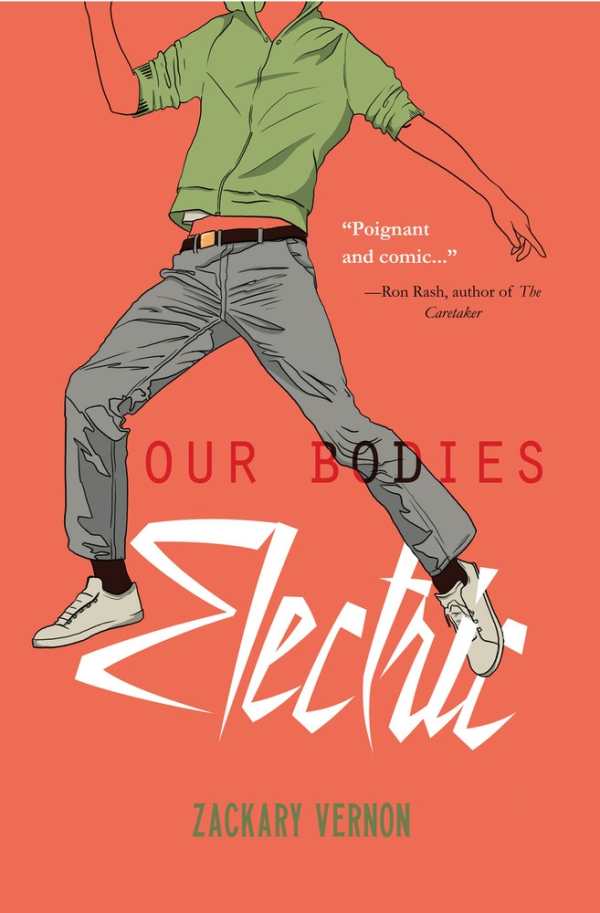Our Bodies Electric
Influenced by Walt Whitman’s Leaves of Grass, Zackary Vernon’s novel Our Bodies Electric is a story of self-discovery set on Pawley’s Island, South Carolina, in the early 1990s.
The book begins the summer before sixth grade, when Josh is immature for his age but also sensation-seeking. Left to find his own way through the aftershocks of puberty without the knowledge or language to communicate what’s happening to him, he pivots between innocence and experience, all the while facing condemnations of perversion in a community that would rather be polite than have an open discussion, resulting in a scatter-plot of missteps.
The story culminates in the summer after ninth grade when Josh dresses as a cheerleader for the high school powder puff game, solidifying his decision to have sex for the first time. Throughout, his exploits evoke a visceral, hormonal physicality. He faces parental neglect, both benign and otherwise, as well as youth group indoctrination and shaming and a paucity of talk about bodies. This leaves Josh thinking of his own sexual urges as “brain maggots.” He, his friends, and the collective population of Pawley’s Island are stewed in a culture of repression that never fully resolves.
Especially concerned with the tensions between sexual awakening and sexual inhibition and scatological in its details, the book hyperfocuses on Josh’s understanding of his own body, making for challenging, often provocative reading. Whether it’s Josh’s fascination with wearing women’s underwear or the boys’ deification of their sex education teacher—one of the only adults who will speak openly to them about sex and bodies—Our Bodies Electric is a novel that seeks to expose and oppose the shame and confusion that accompanies a community’s silence when it comes to themselves and their desires.
Reviewed by
Letitia Montgomery-Rodgers
Disclosure: This article is not an endorsement, but a review. The publisher of this book provided free copies of the book to have their book reviewed by a professional reviewer. No fee was paid by the publisher for this review. Foreword Reviews only recommends books that we love. Foreword Magazine, Inc. is disclosing this in accordance with the Federal Trade Commission’s 16 CFR, Part 255.

